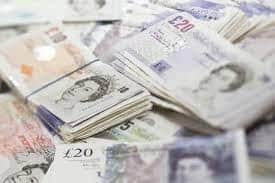76% of people in Northern Ireland are concerned that the wealthy don’t contribute their fair share of taxes
and live on Freeview channel 276
Some 76% of Northern Irish people are concerned that the wealthy don’t contribute their fair share of taxes, according to new polling from the Fairness Foundation.
This is compared to 79% of British people nationwide. These responses came after survey respondents were shown figures on wealth inequality in the UK (the richest 20% of the UK population own 63% of the country’s wealth, while the poorest 20% own 0.6%).
Advertisement
Hide AdAdvertisement
Hide AdSeventy one percent of Northern Irish people are concerned that those with net wealth of £10m or more have too much influence on the political system (compared to 75% nationwide), while 71% think the government should be doing more to tax high-net-worth individuals (those with net wealth of £10m or above), compared to 68% nationally.
People in Northern Ireland are worried about the socio-economic impacts of wealth inequality: 65% of people are concerned that some people in the UK are very wealthy while others live in poverty, while 69% are concerned about unequal opportunities to accumulate wealth, compared to 69% and 65% nationwide respectively.
The polling also found that most people think that opportunities to make money aren't evenly spread, and that many have achieved their wealth more through luck than by hard work.
Fairness Foundation explored what people think about different ways of accumulating wealth, asking for views on five issues (equal opportunity, the role of merit vs luck, fairness of outcomes, societal impact and tax contributions) for seven characters who have ‘earned’ £5m in different ways: the new-money heir, the old-money heir, the landlord, the entrepreneur, the investor, the finance whizz and the sports star.
Advertisement
Hide AdAdvertisement
Hide AdSome of the findings were unsurprising: people are generally positive about entrepreneurs, and largely negative about city traders (finance whizzes) and about those who have inherited money from families that have been wealthy for many generations.


But they are also broadly positive about landlords, and fairly negative about sports stars. Respondents’ own levels of wealth did not have a significant impact on their views about these seven characters, in most cases.
The findings come against a backdrop of very high wealth inequality in the UK. The richest fifth of the population own 63% of the country’s wealth while the poorest fifth own 0.6%. Men have 40% more wealth than women. White households are four times more likely to have more than £500,000 in wealth than Black African households. Total net household wealth as a share of national income has roughly doubled in the last 30 years, although most this has occurred as a result of increases in the value of existing wealth rather than through productive work that has benefited the wider economy.
Will Snell, chief executive of the Fairness Foundation, said: “We know that people get exercised about inequality when they see it as unfair. Our new research shows that most people think that our society and economy is unfair, and it provides some intriguing clues as to why this is. They’re concerned about people becoming wealthy through luck rather than hard work, about the gap between rich and poor, about people not having fair opportunities to acquire wealth, and about the wealthiest in society not paying their way or playing by the same rules as everyone else. Politicians of all parties should treat these concerns seriously and consider how they can take meaningful steps to address them.”
Advertisement
Hide AdAdvertisement
Hide AdGary Stevenson, the inequality economist and former city trader, added: “People don’t realise that the growing wealth of the wealthy comes at their expense, and that’s a big problem. Some think it’s the politics of envy, but ultimately the issue is about how resources are distributed during a time of limited economic growth.”